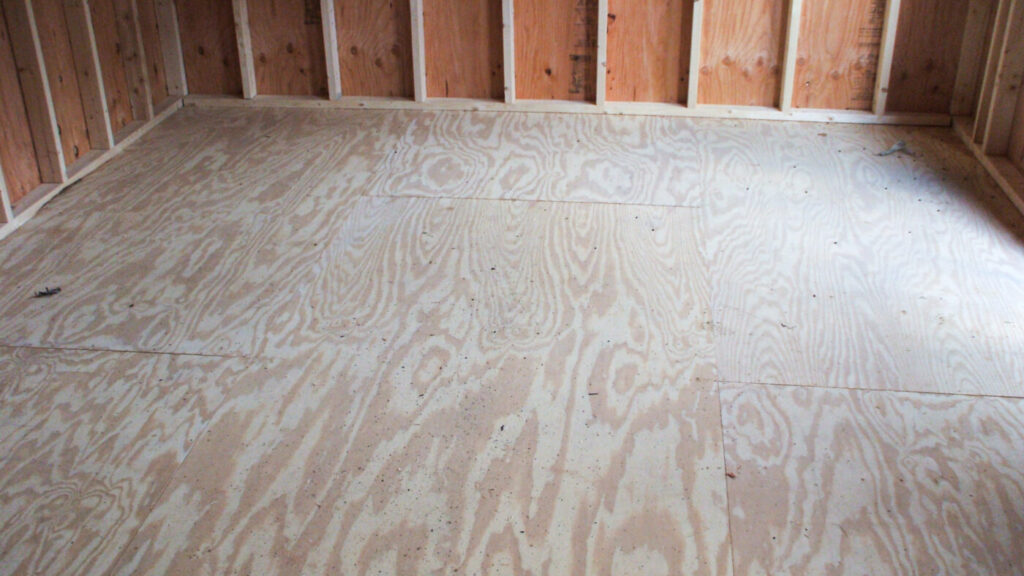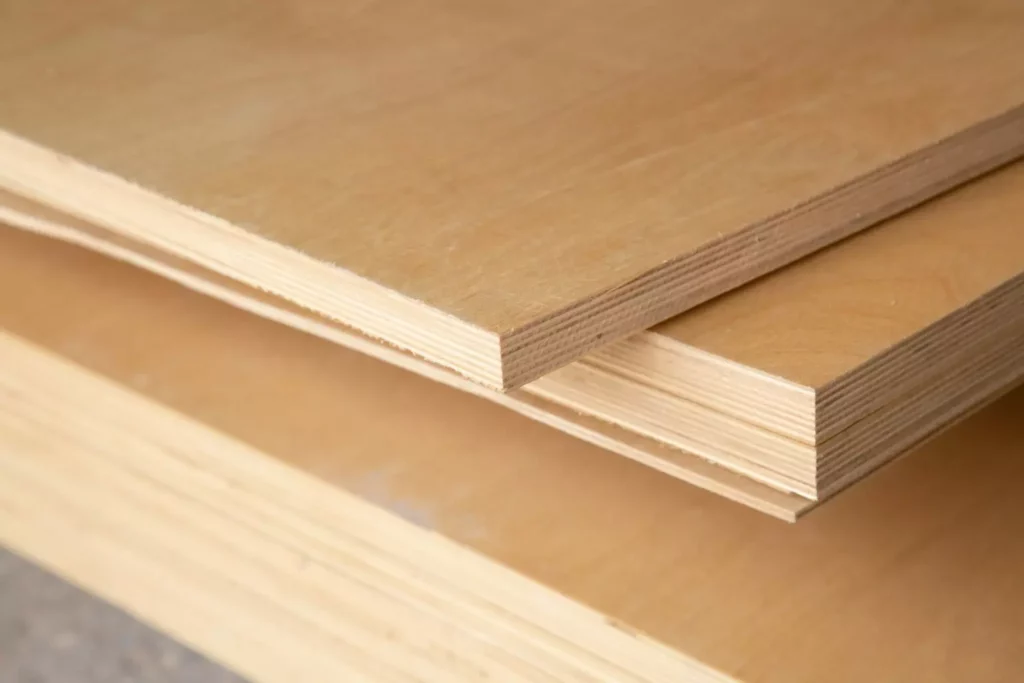Concrete plywood is a versatile and durable material that offers numerous benefits for various construction projects. Whether you’re working on a residential or commercial project, understanding the advantages of concrete plywood can help you make an informed decision. This article explores the key features, benefits, applications, and how it compares to other materials. Additionally, we provide useful tips for selecting the right concrete plywood for your specific needs.
Understanding Concrete Plywood
Concrete plywood, also known as cement-bonded plywood, is a remarkable composite material that has gained popularity in the construction industry for its unique combination of strength, durability, and versatility. This innovative material merges the robustness of concrete with the flexibility and ease of use of traditional plywood, resulting in a product that offers exceptional performance in various construction applications.
What is Concrete Plywood?
Concrete plywood consists of a layer of concrete adhered to both sides of a plywood sheet, creating a strong and stable panel that can withstand the rigors of construction projects. The plywood core provides structural support and stability, while the concrete layers enhance the panel’s strength and resilience, making it an ideal choice for demanding construction tasks.

Key Features of Concrete Plywood
Concrete plywood boasts several key features that set it apart as a preferred material for construction projects:
- Strength and durability: The combination of concrete and plywood results in a panel that is highly resistant to warping, cracking, and moisture damage, ensuring long-term structural integrity.
- Fire resistance: Concrete plywood exhibits excellent fire-resistant properties, making it a safe and reliable choice for buildings where fire protection is a priority.
- Easy installation: Despite its robust nature, concrete plywood is relatively lightweight and easy to handle, facilitating efficient installation and reducing construction time and labor costs.
- Sound insulation: The density of concrete plywood contributes to effective sound insulation, helping to create a quieter and more comfortable indoor environment by reducing noise transmission between spaces.
The Benefits of Using Concrete Plywood
Durability and Longevity
One of the main advantages of concrete plywood is its exceptional durability and longevity. Unlike traditional plywood, concrete plywood is resistant to warping, rotting, and insect damage. It can withstand harsh weather conditions, making it an ideal choice for exterior applications such as siding, roofing, and decking. Additionally, the concrete layer provides added strength and stability, ensuring the structural integrity of your project.
Moreover, the durability of concrete plywood extends its lifespan, reducing the need for frequent maintenance and replacements. This longevity not only saves you money in the long run but also minimizes the environmental impact by reducing waste generated from constant repairs and replacements.
Cost-Effectiveness
When compared to other building materials, concrete plywood offers excellent cost-effectiveness. Its durability and resistance to wear and tear reduce the need for frequent repairs or replacements, saving you money in the long run. The ease of installation also contributes to cost savings, as it requires less labor and time compared to other construction materials.
Furthermore, the cost-effectiveness of concrete plywood is enhanced by its energy efficiency. The material’s thermal mass properties help regulate indoor temperatures, reducing the need for excessive heating or cooling. This energy efficiency not only lowers utility costs but also contributes to a more sustainable and eco-friendly building design.
Versatility in Design
Concrete plywood provides designers and architects with a wide range of possibilities. Its smooth surface allows for various finishes, including painting, staining, or leaving it exposed for a modern industrial look. The flexibility in design options makes it suitable for both contemporary and traditional architectural styles, accommodating your project’s aesthetic requirements.
Moreover, the versatility of concrete plywood extends to its structural capabilities. It can be shaped and molded into custom forms, allowing for unique architectural elements and creative designs. Whether you are looking to create curved surfaces, intricate patterns, or seamless finishes, concrete plywood offers the flexibility to bring your design vision to life.
Concrete Plywood in Construction
Residential Applications
Concrete plywood is increasingly popular in residential construction due to its versatility and durability. It can be used for numerous applications, including exterior cladding, interior walls, floors, and even furniture. The fire resistance properties of concrete plywood add an extra layer of safety and peace of mind for homeowners.
One of the key advantages of using concrete plywood in residential projects is its ability to regulate indoor temperature. The thermal mass of concrete helps in maintaining a comfortable environment by absorbing and releasing heat slowly. This can lead to energy savings by reducing the need for heating and cooling systems, making it an eco-friendly choice for sustainable construction. Find more about temperature on http://hyperphysics.phy-astr.gsu.edu/hbase/thermo/temper.html
Commercial Applications
In commercial construction, concrete plywood finds extensive applications in areas that require both strength and aesthetics. It is commonly used in the construction of office buildings, retail spaces, industrial facilities, and public infrastructure. Concrete plywood can be utilized for flooring, partitions, ceilings, and facades, providing reliable performance and an appealing appearance.
Additionally, concrete plywood offers excellent acoustic properties, making it a preferred choice for commercial spaces where sound insulation is crucial. Its dense composition helps in reducing noise transmission between rooms, creating a more peaceful and productive environment for occupants. This feature is particularly beneficial in office buildings, conference rooms, and hotels where privacy and concentration are paramount.
Comparing Concrete Plywood to Other Materials
Concrete Plywood vs. Traditional Plywood
Unlike traditional plywood, which can be prone to moisture damage and warping, concrete plywood offers enhanced resistance to these issues. Concrete plywood’s superior durability makes it suitable for applications where traditional plywood would not be suitable, such as in moist or high-traffic areas. Additionally, the fire-resistant properties of concrete plywood add an extra level of safety.
Furthermore, concrete plywood is known for its longevity and ability to withstand extreme weather conditions. Its robust nature allows it to maintain its structural integrity over time, making it a reliable choice for outdoor projects or structures exposed to harsh elements. The added weight of concrete plywood also provides stability and sturdiness, making it a preferred option for projects that require a strong and durable material.
Concrete Plywood vs. Steel
While steel is a popular construction material due to its strength, concrete plywood offers several advantages. It is comparably more cost-effective, easier to install, and provides better sound insulation compared to steel. Concrete plywood is also less prone to corrosion and can be used in applications where steel may not be practical or suitable.
In addition, concrete plywood’s versatility extends to its aesthetic appeal. It can be molded and shaped into various designs and textures, offering architects and designers creative freedom in their projects. The natural look of concrete plywood adds a touch of modernity and sophistication to any space, making it a sought-after choice for interior design elements and decorative finishes. Its ability to be stained or painted further enhances its visual appeal, allowing for customization to suit different styles and preferences.

How to Select the Right Concrete Plywood
Factors to Consider
When selecting concrete plywood for your project, several factors need to be considered:
- Project requirements: Determine the specific needs and demands of your project, including structural requirements, environmental conditions, and aesthetic preferences.
- Quality and certifications: Choose concrete plywood from reputable manufacturers that meet industry standards and possess relevant certifications.
- Cost and budget: Evaluate the cost-effectiveness of different options while considering the long-term benefits and overall project budget.
- Expert advice: Consult with professionals or experts in construction materials to ensure you make an informed decision based on your project’s unique requirements.
When it comes to project requirements, it is essential to consider the various factors that will impact the performance and longevity of your concrete plywood. Assessing the structural requirements will help you determine the thickness and strength needed to support the load and withstand any potential stress. Additionally, considering the environmental conditions, such as exposure to moisture or extreme temperatures, will guide you in selecting concrete plywood with the appropriate moisture resistance or thermal properties. Click here to learn more about moisture.
Moreover, aesthetic preferences play a significant role in the selection process. Concrete plywood offers a wide range of finishes and textures, allowing you to achieve the desired look for your project. Whether you prefer a smooth, polished surface or a more rustic, textured appearance, there are options available to suit your design vision.
Tips for Making the Right Choice
Here are some additional tips to help you make the right choice when selecting concrete plywood:
- Research and compare different brands and suppliers to find the best quality and value for your project.
- Read customer reviews and testimonials to gain insights into the performance and reliability of various concrete plywood options.
- Request samples or visit showrooms to assess the appearance, texture, and finish options available.
- Consult with architects or contractors who have experience working with concrete plywood to benefit from their knowledge and expertise.
By conducting thorough research, you can gather information about different brands and suppliers, allowing you to make an informed decision. Reading customer reviews and testimonials provides valuable feedback from those who have already used the concrete plywood, giving you insights into its performance and reliability. Additionally, requesting samples or visiting showrooms gives you the opportunity to see and feel the concrete plywood firsthand, ensuring that it meets your expectations in terms of appearance, texture, and finish.
Furthermore, consulting with architects or contractors who have experience working with concrete plywood can provide you with valuable advice and recommendations. Their knowledge and expertise can help you navigate through the various options available, ensuring that you select the most suitable concrete plywood for your project.
In conclusion, concrete plywood offers numerous advantages that make it an excellent choice for your next construction project. Its durability, cost-effectiveness, versatility in design, and applications in both residential and commercial settings make it a reliable and practical material. By considering the factors mentioned and following the provided tips, you can confidently select the right concrete plywood to meet your project’s specific needs and requirements.
Read about formwork plywood at: The Role of Formwork Plywood in Large-Scale Construction
